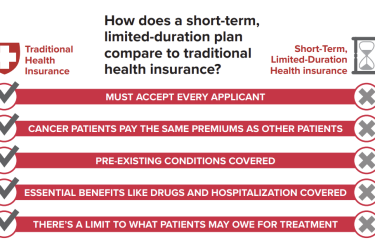
“Right now we have a passive medical system that waits for you to come to it. What we need to do is create a medical system that actively seeks out really sick people and takes much better care of them,” says Jeffrey C. Brenner, M.D. A family physician in Camden, N.J., Brenner is one of 24 MacArthur Foundation fellows named on Wednesday. Informally known as a “genius grant,” the fellowship award is $625,000.
Brenner also is the founder and executive director of the Camden Coalition of Healthcare Providers, an organization seeking to improve the quality of care delivered to vulnerable populations in Camden. The coalition has community-based physicians, hospital staff, social workers, nurses, and other providers work in teams to deliver comprehensive preventive and primary care to the neediest patients, the foundation said.
Sometimes called super utilizers, high utilizers, or frequent fliers, these patients have complex medical conditions and often lack social services, such as transportation or knowledge about how to use the health system most effectively. High utilizers account for a disproportionately high share of overall spending. By some estimates, 5 percent of these patients account for more than 60 percent of all health care costs.
Announcing the award, the foundation said, “Determined to improve the lives of the sickest residents of Camden, New Jersey — one of America’s poorest cities — Brenner constructed a searchable database and geographic mapping of discharge data from all patients at Camden’s hospitals and discovered that a very small number of patients consumed a large share of the overall costs of health care and social supports.”
Last year, Jennifer LaRue Huget described Brenner’s work in an article in The Washington Post. “Simply put, super-utilizers are people who overuse emergency departments and hospital inpatient services, making more visits to those facilities in a month than some people make in a lifetime,” she wrote.
Even though the coalition is caring for patients who likely qualify for Medicaid, the federal health care program for the poor does not pay for the coalition’s work with these patients. Perversely, Medicaid pays when these patients go to the emergency rooms or need inpatient hospitalization, even if the same patient visits the ER or stays in the hospital repeatedly. Much of the coalition’s funding comes from grants from the Robert Wood Johnson Foundation, the U.S. Department of Health and Human Services, and other sources.
“There are no billing codes for this,” Brenner explained during an episode of Frontline in 2011. “There’s no way currently to bill insurance or to bill Medicaid or Medicare for the kind of care that a team like this delivers. Other people have tried this, but it’s just very hard to get sustainable funding for this kind of work.”
Atul Gawande, M.D., was the correspondent for the Frontline story. He also published an article about Brenner in The New Yorker in 2011.
Since then, the health care system has slowly begun to recognize the value of managing high utilizer patients more closely. Hospitals and health systems that assume the financial risk of caring for patients in accountable care organizations (ACOs), for example, could benefit from introducing Brenner’s methods. This is a point Rene Letourneau made in HealthLeaders Media earlier this year. “Financial executives at hospitals and health systems know how desperately their organizations need to reduce the cost of care going to ‘frequent fliers,’” she wrote.
In August, Brenner addressed the National Governor’s Association in Milwaukee and said governors should “take the lead in shifting health care delivery from its heavy and expensive reliance on hospitals to a less-expensive community care model that actually can improve outcomes,” according to an article by Rich Kirchen in The Business Journal.
For health care journalists, the story to watch for is whether and how quickly ACOs, state Medicaid programs, and others organizations delivering care to high utilizers adopt the ideas Brenner’s coalition promotes.










